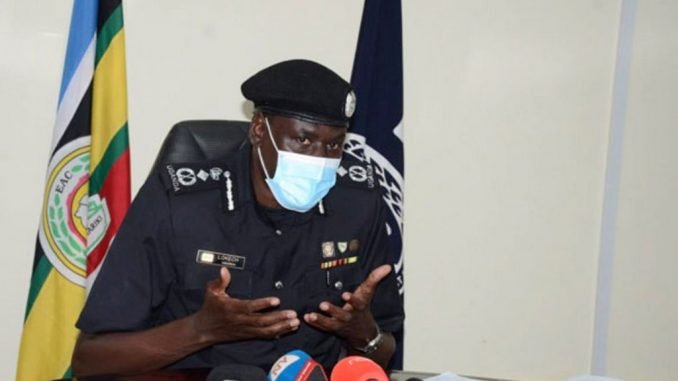
Kampala, Uganda | URN | There is increasing fear among the Uganda Police Force as the deputy Inspector General of Police, Maj. Gen Paul Lokech prepares to release a list of corrupt police officers soon.
Maj. Gen Lokech announced a fortnight ago, that over 100 police personnel were to be dismissed from the police force after repeatedly being involved in corruption incidents.
The deputy police chief in February, according to security officers at Naguru police headquarters, tasked acting commissioner police Professional Standards Unit, Sarah Kibwika, to list all police officers who have severally been implicated in numerous corruption scandals.
Kibwika has reportedly been working with the anti-corruption department at Criminal Investigations Directorate in Kibuli and human resource management to review all files of policemen and women repeatedly accused of being corrupt.
“By end of last month, PSU had tabled 120 names and most of them have five or more corruption incidents in which they have been cited. Some have been tried in police court and convicted. After getting the list, that was when DIGP (Gen. Lokech) told journalists that the list would soon be released,” a source said.
Gen. Lokech hopes the naming, shaming as well as dismissal of police personnel implicated in corruption will serve as an example to others. Besides, it would show police officers that corruption and bribery as have no room in the force.
Sources say 70 out of 120 police officers so far on the list are junior and senior police detectives. It is alleged that a good number of detectives have been intentionally misplacing case files, partly the reason why police takes only 35 percent of total cases registered every year. In 2019, CID took over 70,000 cases to court despite having recorded more than 225,000 crimes.
“The list is likely to grow to over 180 people because there are pending names of traffic officers and 999 Patrols. I am one of the people who have seen the list and other names still being scrutinized. It is going to be bad for officers whose names will be published,” a source added.
ACP John Williams Okalanyi, in his last address to the media, before he was replaced as PSU commandant, said on average 2000 general complaints are lodged by civilians against police personnel every year.
In 2014, PSU received 2,639 complaints, 2,547 complaints were lodged in 2015, PSU registered 2660 complaints in 2016, PSU received 2271 complaints in 2017, the 2018 complaints stood at 2383 while PSU recorded 2,174 complaints in the year 2019.
PSU in the last five years indicates that most of the complaints have been about corruption, bribery, torture, detention without trial and general human rights abuses. ACP Okalanyi added that on average PSU disposes off more than 1500 complaints every year.
Nonetheless, Gen Lokech’s decision to publicize and dismiss the alleged corrupt police officers has created debate at police headquarters as some senior policemen and women suspect that a number of suits could arise from the decision.
Read Also: What you should know about newly appointed deputy IGP Maj Gen Paul Lokech
“For a policeman to be dismissed from the force, he must have been accorded fair trial and that is police court if it’s disciplinary matter. If its criminal, it must be in a competent court. Corruption is criminal and thus cases must be heard in criminal courts. I am waiting to see how it will be handled,” said one of the top police officers.
Even after a police officer has been convicted in police court, he or she can appeal in the appellate court currently chaired by AIGP Asan Kasingye. “When the appellate court upholds the lower court judgement, a policeman can be dismissed immediately if he or she is in the junior category,” a senior policeman added.
But if a police officer is the senior category for instance Assistant Superintendent of Police –ASP and Assistant Inspector General of Police – AIGP, he or she can only be sacked by Police Authority chaired by Internal Affairs minister.



